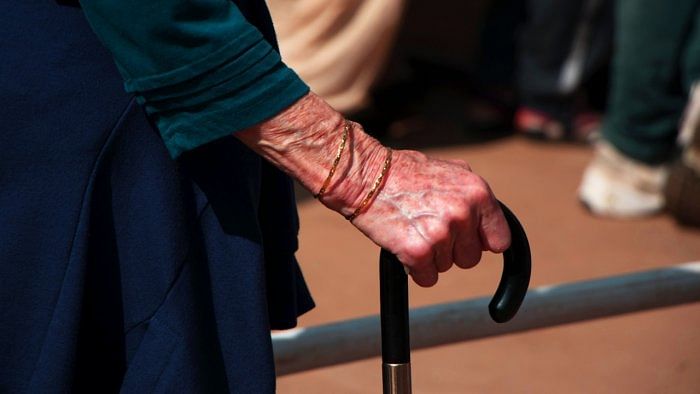
Those aged above 60 years are usually considered senior citizens, but major advancements in health and life expectancy in recent years have enabled many to stay active much longer. Now, a study indicates that the ageing threshold in Karnataka would be much higher at 66 years.
The study — co-authored by Jawaharlal Nehru University (JNU) researcher Sampurna Kundu and Dr Preeti Dhillon, Assistant Professor at the International Institute for Population Sciences, Mumbai — says that the higher ageing thresholds have implications for retirement age and health policies of states.
It looked at five dimensions of people aged above 50 years — their remaining life expectancy, self-rating of health, ability to do daily activities, hand grip strength and cognition — to arrive at multi-dimensional old-age thresholds (MOATs).
It found that the MOAT for India overall is 67 years. At this age, on average, Indians have 13.3 more years of life expectancy, have mean hand grip strength to lift 19.6 kg, can recall around five out of 10 words, 23% rate themselves as having good health, and 31% can perform daily activities independently. For Karnataka, this threshold is 66 years, slightly lower than the national average.
Karnataka fares better than some other states in the study. While Maharashtra (68.6 years) and West Bengal (66.5) did better than Karnataka, three others — Uttar Pradesh, Rajasthan and Assam — fared worse. Assam had the least MOAT at 63.9 years. This means, a 63.9-year-old in Assam has aged as much as a 66-year-old in Karnataka. Higher MOAT values “indicate better performance”, says the study published in the Journal of Biosocial Science of Cambridge University Press in August.
The survey was based on data from the 2011 Census and the WHO study on Global Ageing and Adult Health, Wave 1, conducted in 2007-10.
Karnataka’s old-age threshold is particularly high when considering only cognition — those aged 71 could recall five out of 10 words.
Karnataka is also the only state that has a higher MOAT for females than males (66.3 vs 65.9 years), ie, women are ageing slower than men. When considering cognition as the only factor also, women outperform men in Karnataka (74 vs 68.5 years). The study attributes this to higher levels of gender equality in southern states. In all other states in the study, women are found to age much earlier than men despite their higher life expectancy.
The study also shows a rural-urban difference in ageing. Across all states, the rural population aged faster than the urban population. In Karnataka, urban population attained MOAT at 66.9 years, whereas rural population attained it at 63.3 years.
When MOAT is considered instead of the conventional 60-year threshold, the share of senior citizens in India would reduce from 8% to 4%, says the study. The findings recommend an extension of retirement age, especially for jobs where cognitive skills are the basic requirement.
It points out that Japan, for example, has increased its retirement age to nearly 70 years.